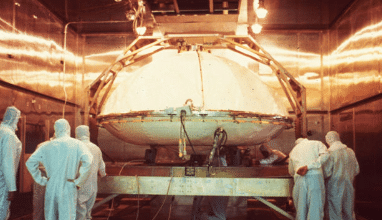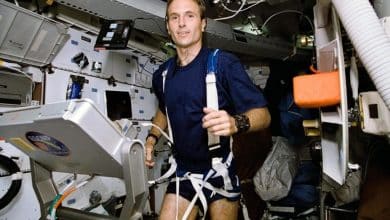Promising future of Space Tourism| What if a person dies?
Without a question, space tourism is very different from your usual trip and has both benefits and drawbacks. There is little question that space tourism will play a significant role in future travel and leisure, though. Only a few millionaires and billionaires can now afford space flight, but this will change over the next few decades. The expenses will go down as more businesses participate in space exploration. As a result, an increasing number of individuals will partake in these extraordinary experiences. Therefore, maintain nurturing your interests in space exploration since commercial space tourism has a promising future.
How a vacation in space is not like one on Earth
Leaving gravity behind is difficult, but the payoff is incredible. With a view that’s worth the money, you get to see the whole earth. Let’s examine a few of space tourism’s distinctive characteristics.
Being weightless in space
People who are interested in space exploration have been waiting for a chance to travel to space. The floating astronauts wearing spacesuits are the most recognizable photos in this regard. Many space enthusiasts have long desired to feel weightless. Without traveling to space, it is impossible to feel such weightlessness, making space tourism a remarkable development. Now that space travel is becoming more widely available, anyone who is prepared to pay for a space voyage can have this experience.
It’s an amazing view.
From a suborbital historical vantage point, picture the world in front of you, with all the models you see on Google Earth in your line of sight. It’s an experience that can only be had once in a lifetime and cannot be duplicated here on earth. Because of this, space travel is an uncommon experience. Even though the cost is now prohibitive for regular visitors and that desire alone won’t get you on a suborbital journey, the dream is still worthwhile. It will eventually become more reachable to regular people.
Why is space tourism clearly different?
There is no question that space tourism is unique. There is nothing on earth that can compare to the experience since it is so singular. You practically reach cloud 9 as a result of the flight, adventure, and adrenaline drift. Only the fortunate few with millions in their bank accounts can now afford space travel, but sooner or later that will change.
The difficulties of space tourism are likewise quite great.
Space fright
Every space lover has always dreamed of entering space, which is no ordinary task. However, NASA astronauts undergo a rigorous training before they are prepared for space flight for a reason. Commercial space travel doesn’t call for any specialized training, but it doesn’t guarantee you won’t have any motion sickness. When you make such a big jump, there will inevitably be some suffering, so be ready for it.
The pull of gravity
The rocket is continually being pulled back as it leaves the atmosphere of the planet. Three times the normal pull we feel on the surface of the earth is needed to reach the escape velocity. Before you can board a rocket and head into space, you must first get used to it, which is really uncomfortable.
Affordability
Cost is the main barrier that sets space tourism apart from your typical trip since you probably can’t afford it. Currently, space travel packages start at $450,000, with costs increasing as the altitude and time spent in space rise. The most expensive is SpaceX, but it also offers the most exciting space adventure experience.
What if a person dies in space?
Prior to entering space, astronauts have often had extensive training and medical examinations, and the likelihood of dying from natural causes has historically been low.
However, it seems that medical screening may not be done in this new era of space tourism, and only rudimentary pre-flight training may be given. With so many different types of individuals already traveling to space and the potential for humanity to construct bases on the Moon and beyond in the coming years, it begs the crucial question: what happens if someone passes away in space?
All national space activity, whether governmental or private, must be authorized and supervised by individual nations per international space law. Commercial tourist spaceflights must get a license from the Federal Aviation Administration to launch in the United States.
It would be necessary to determine the cause of death in the event that someone died while on a business tourism assignment. The Federal Aviation Administration would consider halting additional launches by the corporation while an inquiry is underway if a spaceflight participant’s death was caused by a mechanical issue with the spacecraft.
If mechanical failure is dismissed, the commercial provider would need to take into account its general duty of care to all travelers and determine whether it took all reasonable steps to prevent the person’s death.
A Practical Perspective
Missions that take people deeper into the Solar System will need to think about the physical disposal of human remains in addition to the legal aspect. It’s crucial to remember that various cultures view the deceased in very diverse ways in this situation.
It is conceivable that the corpse might be returned to Earth on brief excursions. To protect the crew members who were still alive, the body would need to be kept and maintained.
The corpse may perhaps be frozen in the cold of space on a round-trip to Mars, which would take years and maybe a possibility in the future decades, to lessen its weight and make it simpler to store on the way back to Earth.
But if we begin colonizing space, it could be necessary to dispose of the dead rather than preserve them. Fans of Star Trek may remember how Spock’s body was launched into space, but in reality, this definitely wouldn’t be a good idea. Countries would not want a dead person drifting around in space, and the body itself might add to the rising problems brought on by space debris. The deceased person’s relatives can desire to have their loved one’s body returned to them.
On a colony, handling human remains is also tricky. A colonist’s remains interred on another planet might contaminate it physiologically. Additionally, cremation could need a lot of resources and be contaminated.
Technical methods for the preservation and disposal of human remains in space will surely exist in the future. However, the moral dilemmas surrounding space death transcend anthropological, legal, and cultural barriers. Though it may be unsettling to consider, this is only one of many discussions that will be necessary as humans evolve into a space-faring society.






Can you be more specific about the content of your article? After reading it, I still have some doubts. Hope you can help me.
Thanks for sharing. I read many of your blog posts, cool, your blog is very good.